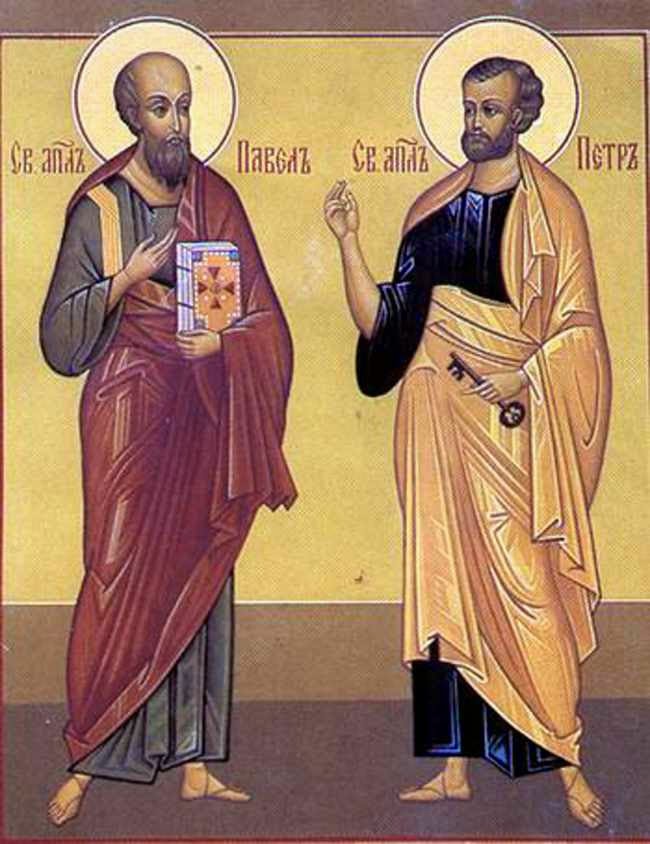| Online: | |
| Visits: | |
| Stories: |

| Story Views | |
| Now: | |
| Last Hour: | |
| Last 24 Hours: | |
| Total: | |
Homily Notes: Feast of St's Peter and Paul
Pope John Paul II often spoke about the conflict between the culture of life and the culture of death He spoke of a conflict “between a culture that affirms, cherishes, and celebrates the gift of life, and a culture that seeks to declare entire groups of human beings – the unborn, the terminally ill, the handicapped, and others considered “un-useful” – to be outside the boundaries of legal protection.”
Pope Benedict XVI urged us to “respect the inalienable dignity and rights of each man, woman and child in our world — including the most defenceless of all human beings, the unborn child in the mother's womb.”
Pope Francis said recently “All life has inestimable value even the weakest and most vulnerable, the sick, the old, the unborn and the poor, are masterpieces of God’s creation, made in his own image, destined to live forever, and deserving of the utmost reverence and respect.”
The Popes take their lead from St’s Peter and Paul, the two founding pillars of the Church, both chosen and commissioned by Christ to preach the good news of the gospel of life
The gospel puts the question to the disciples today “Who do you say I am?” a question that requires answering in the lives of those who bear the name of Christ. Peter responds by saying “you are the Christ!” He demonstrates this by, engaging in a life of witness to Christ. This witness has its ups and downs. Three times Peter denies even knowing who Jesus is, and yet he is martyred for his witness. His life was one of bringing others to faith, in Christ. He is the “Rock” upon which the Church is built by Christ. St Peter’s in Rome gives witness to his faith and subsequent generations of Christians are inspired by Peter, the Rock, to seek the truth and express their faith by being part of the Church.
Peter was a man of faith, a sinful man, who fell to the floor many times, but who got back up again graced by the forgiveness of God, in Christ. His faith did not protect him from his own weaknesses but it helped him to overcome them and witness with great courage to Christ. We owe him so much the first leader of the faith. We seek to be guided by his example, we are weak, flawed, sinful, and yet we can be forgiven and loved by Christ, when we turn to him and follow him.
St Paul was the great teacher of faith, who brought the word of God to the gentiles. The question was asked of him “why are you persecuting me?” to which Paul replied, by converting to Christianity, and spending his whole life preaching it, living it, and suffering great hardship for the sake of the faith. He too was martyred for his witness to faith. He was not perfect but was constantly assessing his living in the light of the Spirit of God.
St Peter and St Paul, two great pillars of the Church, teach us much about what it means to be a Christian. We give thanks to them today, as we acknowledge the contributions they made to the growth of the church, and its influence, reaching beyond each generation since.
Source: http://humblepiety.blogspot.com/2014/06/homily-notes-feast-of-sts-peter-and-paul.html




